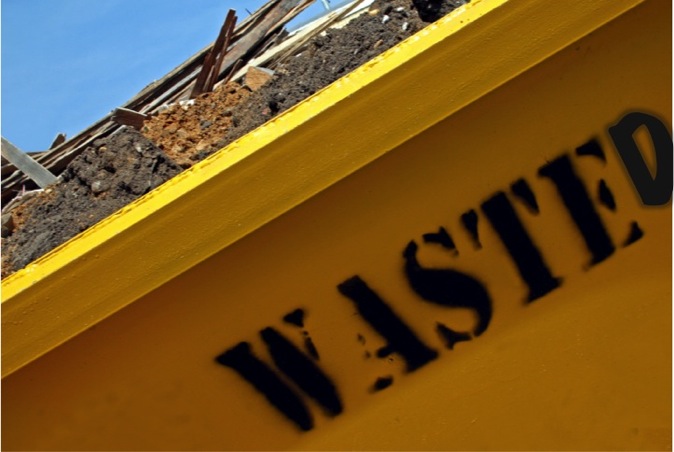Don’t lock yourself (or others) onto a unsustainable path

Back in 2004 when I was first elected Councillor, I was part of the first change in political control of the Council for 31 years, a real shock to the system for all involved. Our manifesto included a commitment to ‘zero waste’, so we got stuck into boosting the levels of recycling in the City. And we had substantial success, boosting our recycling rates from a frankly pathetic 8% up to a respectable 43%. But then we hit a ceiling.
We found that the previous administration had signed a 25-year PFI deal to treat residual waste. That residual waste was processed in in-vessel composters (IVCs) to break down organic waste into ‘grey compost’ which was only fit for landfill capping as it was so contaminated. If we brought in food waste collection and anaerobic digestion as we wanted to, the reduction of organic material would render the IVCs inoperable and we’d be in breach of contract. Whoever signed that contract presumably thought that it made sense at the time, but they locked the City onto a particular path for 25 years to come – a massive brake on progress.
So, fast-forward 16 years, the end of the PFI project is in sight and the Council has been back under the previous political regime for 9 years. Have they learnt the lesson from last time?
No.
The good news is that they are now in a position to collect food waste, but the bad news is they have signed a 29 year deal, alongside 6 other local authorities, for an energy-from-waste plant for residual waste. And, as before, they will need to ‘feed the beast’ until 2050.
The one thing we know is that by 2030, say, material recovery technology will have taken another quantum leap forward. We know that industry is busy embracing the circular economy now, and demand for recovered materials will have risen massively in the next decade. So why the hell are we investing in expensive capital projects to compete with the circular economy? It is complete and utter madness.
So, ranting aside, how can this kind of mistake be avoided?
In a word, ‘backcasting’. Instead of projecting forward from the situation today, backcasting starts at the end point eg Zero Waste by 2030 (say). You create a vision of what that could look like and then steps backwards to the present to work out what steps would be required to get there. You don’t necessarily have to follow those steps if better options emerge, but the method is very good at avoiding locking the kind of organisation/city/country into unsustainable paths we have seen in my example above. I use backcasting with my clients to create their sustainability strategy and it has quite an extraordinary effect on the way people see Sustainability.

